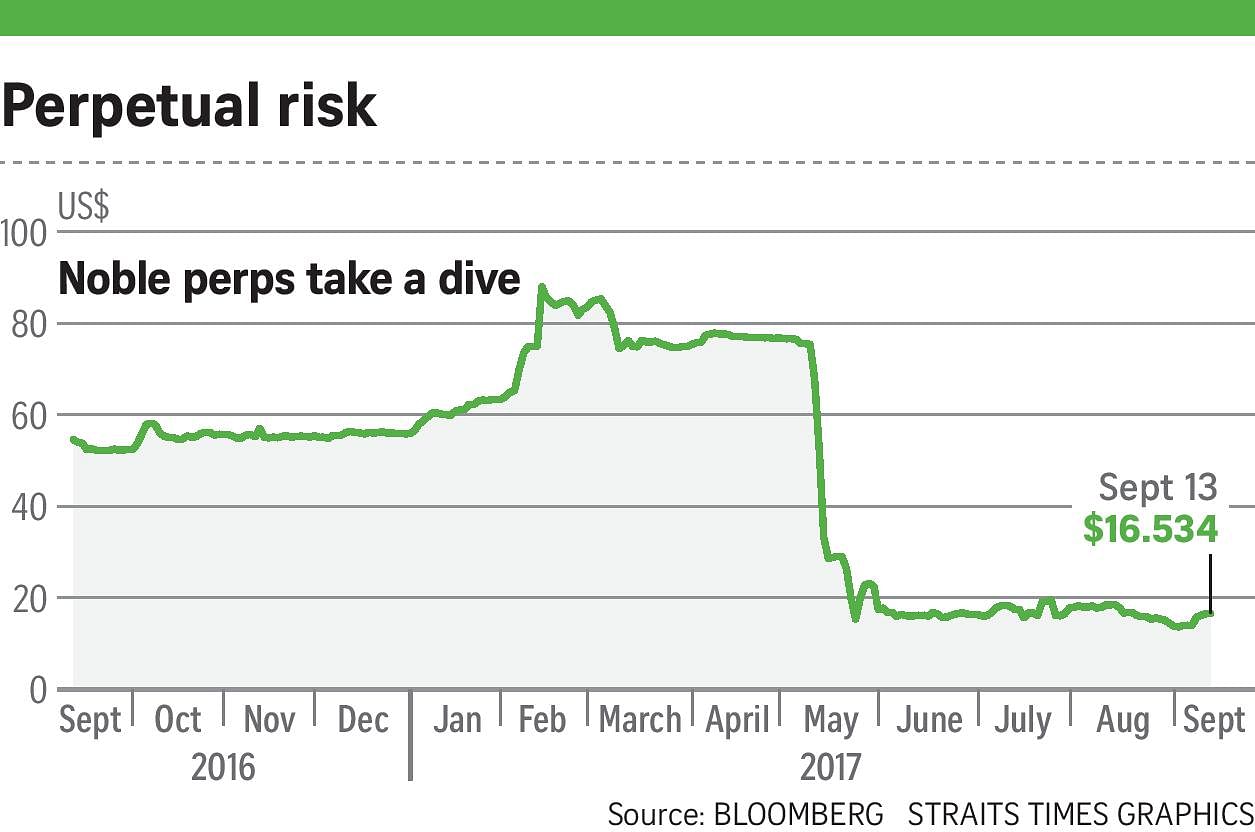Investors are nervous that they are not getting paid adequately for the risks they are taking in buying high-yield corporate bonds, yet they keep ploughing into them in a big way.
It is not hard to see why: Keeping the money in the bank earns almost zero returns, given the extremely low interest rates.
Still, buying bonds has not been completely smooth sailing, with cases of the jitters becoming a regular occurrence in the local corporate bond market since last year.
The illusion of safety about investing in corporate bonds issued by companies on the Singapore Exchange (SGX) was shattered when Hong Kong-based but locally listed Pacific Andes Resources Development defaulted on a $200 million three-year bond issue in January last year.
But what really made investors sit up were the huge sums owed by oil support services company Swiber Holdings - $721 million to DBS and another $551.8 million to bond holders - when it went belly up in July last year.
Since then, the corporate bond has regained its footing, even though a few other issuers - also mainly from the troubled offshore and marine sector - have defaulted.
Consider, for instance, the growing appetite for perpetual issues, or perps for short. These are a bond-like instrument that allows an issuer to defer interest payments under certain circumstances, without having to worry about getting sued for bankruptcy.

They also have no maturity date while repayment of the principal is also left at the discretion of the issuer. Because of this feature, they can be counted as equity, rather than debt on the issuer's books, and allow the issuer to raise capital without diluting its equity base.
But this also makes perps riskier for investors than straight bonds, where both principal and interest must be paid according to a fixed schedule.
There have been 11 perps issued so far this year, raising a total of $3.96 billion for a diverse range of firms, from banking giant HSBC Holdings to industrial conglomerate Sembcorp Industries and real estate developer Wing Tai Holdings.
In contrast, there were only seven perps last year, which raised $2.32 billion in all and seven in 2015 that reaped $2.95 billion. In 2014, there were six perps that raised $1.45 billion.

And in tandem with the increasing demand, the coupon rates on perpetuals have fallen as well, no doubt in line with the worldwide trend showing a decline in corporate bond yields.
But in the local context, one question to ask is whether investors are getting rewards commensurate with the risks being taken.
Take Sembcorp Industries, which was able to price the coupon rate on its perps at only 3.7 per cent while StarHub's perps pay 3.95 per cent. This is lower than the 4 per cent interest rate paid on the Central Provident Fund (CPF) special account, which is guaranteed by the Singapore Government.
What I find troubling is the serious mismatch of risks. How can investors be so hard up for yield that they are even willing to accept a coupon rate - whose payout is not assured - that is lower than the interest rate on the risk-free CPF special account?
As it is, beleaguered Noble Group Holdings provided an example of a company that recently deferred the coupon payout on its perps. That move caused the perp's value to plunge to just 16 per cent of the issue price.
A bigger worry is that since many of these riskier bonds are not rated by a reputable credit rating agency, a big chunk is sold to well-heeled individual investors who may not understand the risks, rather than to fund managers whose investment mandates would usually require them to stick to investment-grade instruments.
As it became clear last year when Swiber and other high-yield offshore and marine bond issuers went kaput, many of these investors were not exactly ultra rich or financially sophisticated at all.
Some were retirees whose net worth may have exceeded $2 million because their assets included properties purchased years ago that had appreciated in value.
And other than looking at the headline-grabbing yield, they seldom do any research on the companies whose bonds they had snapped up.
Unlike bonds traded on the SGX, many perps sold in this manner seldom change hands and realistically speaking, these holders can get their principal back only if the company redeems the securities.
But to enhance their attractiveness to buyers, the issuer usually agrees to a step-up in interest rates after a certain number of years. Because of this feature, perp holders always take it for granted that issuers would try to recall the perps before the so-called step-up in interest kicks in.
A good example is casino operator Genting Singapore. It recently announced its intention to redeem the $500 million of perps sold to retail investors five years ago that are paying an attractive coupon of 5.125 per cent.
That was on top of the redemption of a $1.8 billion perp issue it had sold on the wholesale market to institutional investors.
But then Genting operates a cash cow in its casino business and was sitting on $5.69 billion as at June 30. That makes repayment a breeze.
Last year, rather than confine its perpetual fund-raising to the wholesale market, water treatment specialist Hyflux took its issue to the retail crowd.
Attracted by its mouth-watering 6 per cent coupon, the demand was so strong that it was able to upsize its offering to $500 million from the original target of $300 million, a sum bigger than its then market capitalisation of $444 million.
After raising such an enormous sum, Hyflux redeemed two earlier perps that it had sold to institutional investors - a $175 million issue with a coupon of 4.8 per cent and a $300 million one with a coupon of 5.75 per cent.
It is interesting to note that the two perps retired by Hyflux were almost equivalent in value to $500 million raised in its retail perp - and that the water treatment specialist was willing to pay a higher coupon rate in order to get the financing.
But one question to ask is what happens when the deadline on the step-up interest on the Hyflux retail perp approaches? Will the company be in the position to retire the perp?
To avoid surprises, investors should take a hard look at whether the risks are worth taking before subscribing to a perp issue.
For a start, they should assess the issuer's financials and the level of debt leverage on its balance sheet. They should also study the firm's ability to get refinancing for its perps before parting with their money.
That will save them considerable heartache when the credit cycle tightens, as it surely will, and companies no longer find it as easy to raise funds as they do right now.
•Goh Eng Yeow's new book, Market Smart, will be launched at SGX Auditorium on Friday, Oct 6. For details, go to www.sgxacademy.com.




